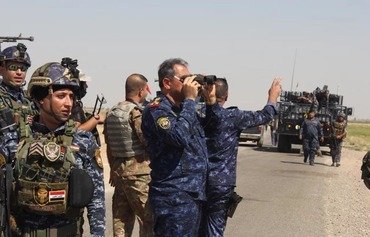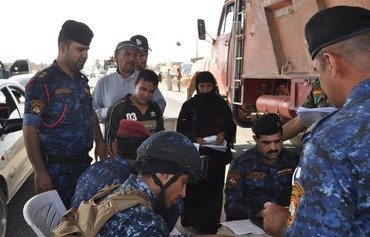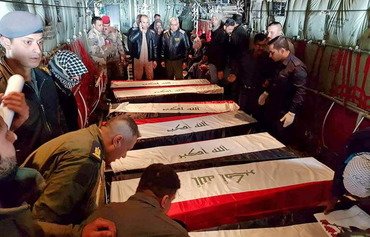Iraqi forces have boosted their presence in and around the Kirkuk province city of al-Hawija in order to oust remaining pockets of "Islamic State of Iraq and the Levant" (ISIS) fighters, officials told Diyaruna.
ISIS fighters have conducted sporadic attacks in the city in recent weeks.
"Security forces supported by tribal fighters have boosted their military deployment in al-Hawija and its sub-districts," said al-Hawija governor Sabhan al-Jubury.
They have reintroduced search operations to hunt down ISIS remnants, with a focus on remote agricultural villages, he told Diyaruna.
Clearing operations under way
"The clearing efforts are being carried out using the available intelligence information in areas where the militants have been active and security breaches have taken place," al-Jubury said.
Al-Hawija includes many sub-districts, including al-Riyadh, al-Rashad and al-Abbasi, and encompasses an area of about 18,000 square kilometres.
The area's terrain offers militants cover, as there are ample places to hide in its valleys and along river banks, where there is dense growth of bushes.
According to al-Jubury, ISIS remnants "are trying to exploit the terrain to carry out attacks" in order to show that they still have a presence in the area.
Iraqi forces crushed ISIS in al-Hawija, he said, recapturing the city on October 5th in a "rapid, quality liberation operation".
"A small number of those terrorists managed to escape and disappear from sight," he said, noting that they are currently launching attacks and assassinations in areas where security is lax.
These include the villages of al-Zab district in western al-Hawija as far as the Hamreen hills, al-Jubury said.
Fewer than 100 ISIS remnants
"There are still small ISIS cells hiding in rugged areas," al-Hawija tribal mobilisation field commander Salah Razouqi told Diyaruna.
"Our information confirms there are terrorists hiding in the bushes near the rivers of al-Khasa and Zughaitoun (southern al-Hawija) and in Wadi Abu al-Khanajir and remote areas in western al-Hawija," he said.
According to estimates, he said, fewer than 100 ISIS fighters remain in the area.
"They do not have the capacity to carry out large-scale attacks or seize even one inch of liberated territory, but occasionally they carry out desperate operations," Razouqi said.
This week they assassinated Col. Fadhil al-Sabaawi, head of the al-Sharia village police station in al-Riyadh district, and the head of the al-Juhaish tribe in Kirkuk, Sheikh Waleed Nuri al-Juhaishi, he said.
Security forces foiled an attack staged by gunmen near Wadi Abu al-Khanajir, he added, killing a large number of the perpetrators.
"After these recent attacks, patrols and monitoring operations have been stepped up," he said. "We can assure everyone that our areas are controlled with an iron fist, and we will completely eliminate all ISIS pockets."
Reports 'have been exaggerated'
In the wake of these attacks, some media outlets published reports that claim ISIS is "planning to take control of al-Hawija again" and that it has begun to infiltrate the outskirts of the city.
These reports have been exaggerated, Razouqi said, noting that in a December 26th statement, the Media War Cell refuted them and warned media outlets against "making up scenarios that compromise national security".
According to the statement, the government maintains "its full right to prosecute any party that tries to mislead public opinion".
"The situation in all areas of al-Hawija is stable," Kirkuk provincial council member Maan al-Hamdani told Diyaruna.
The security forces "are pursuing terrorists everywhere and will not allow them to compromise the military victory", he said.
Al-Hamdani called for public services to be provided to al-Hawija and its sub-districts and villages to encourage the return of the displaced population.
"There used to be about 450,000 citizens living in these areas, and most of them have been displaced over the past three years," he said.

![Iraqi police cross a river during operations to liberate the city of al-Hawija from the 'Islamic State of Iraq and Syria'. [Photo courtesy of Iraqi Federal Police Command]](/cnmi_di/images/2018/01/03/10916-Iraq-Hawija-police-600_384.jpg)






